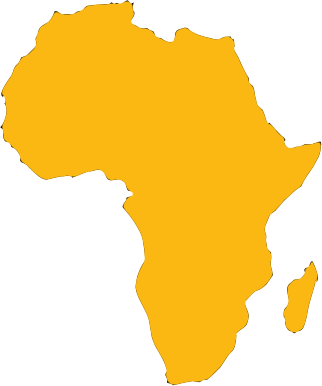Greatest Africans: Meles Zenawi
By Joburg Post
'To impose democracy from outside is inherently undemocratic'.
Ethiopia's prime minister, Meles Zenawi, tells Simon Tisdall in a rare interview that western policy in the region is ill-informed and at times arrogant Meles was born in Adwa, Tigray, in northern Ethiopia, to an Ethiopian father Zenawi Asres from Adwa and Alemash Guebreluel from Adi Quala, Eritrea. He was the third of six children. His first name at birth was "Legesse" (thus Legesse Zenawi, Ge'ez: ለገሰ ዜናዊ legesse zēnāwī). However, he eventually became better known by his nom de guerre Meles, which he adopted in honor of university student and fellow Tigrayan Meles Tekle who was executed by Mengistu's government in 1975. He received primary education at Queen of Sheba Junior School located in Adwa. It took him 5 years to complete the regular 8 years program as he was able to skip grades and join the next level. He then joined the prestigious General Wingate High school in Addis Ababa on full scholarship and completed high school in 1972.
After high school, Meles studied medicine at Addis Ababa University (at the time known as Haile Selassie University) for two years before dropping out his studies in 1974 to join other students and form Tigrayan National Organization (TNO) the forerunner Tigrayan People's Liberation Front (TPLF) in Dedebit, Tigray. Aregawi Berhe, a former member of the TPLF, notes that historians John Young and Jenny Hammond "vaguely indicated" Meles as founder TPLF in their books. Aregawi insists that both he and Sibhat Nega joined the Front "months" after it was founded. While a member of the TPLF, Meles established the Marxist-Leninist League of Tigray. Meles was elected member of the leadership committee in 1979 and chairman of the executive committee of TPLF in 1983. He was the chairperson of both the TPLF and the EPRDF after the EPRDF assumed power at the end of the Ethiopian Civil War in 1991. He was president of the transitional government of Ethiopia (TGE), during which Eritrea seceded from the country and a federal Government that is based on representing the nation and nationality of the country started.
Meles’s Presidency and Premiership
Meles stated that EPRDF's victory was a triumph for the thousands of TPLF-fighters who were killed, for the millions of Ethiopians who were victims of the country's biggest famine during the Derg regime, when some estimates put up to 1.5 million deaths of Ethiopians from famine and the Red Terror. Accordingly, he maintained that the big support it received from peasants and rural areas helped EPRDF maintain peace and stability. Foreign support was diverse; the Arab League, as well as Western nations, supported the EPRDF rebels against the communist Moscow-supported government (although the TPLF was at the time Marxist) at the height of the Cold War. The United States facilitated peace talks between different rebel groups including EPRDF and the Derg to bring an end to the civil war which lasted for 17 years and reach some kind of political settlement in 1991. The talks didn't bear any fruit as EPRDF's force were moving to the capital and Mengistu fled the country. The United State agreed to support the EPRDF which would have, nevertheless, seized power without anyone's support. Many angry demonstrators in Addis Ababa reacted to this by protesting against Herman Cohen, the U.S. State Department's chief of African affairs who attended a conference that demonstrators viewed as legitimizing the EPRDF. Even though the victory of EPRDF success was welcomed as a relief from DERG's military rule, there was strong anti-EPRDF sentiments present in many parts of the country and was strongly visible in Addis Ababa. The main opposition to EPDRF's and by implication Meles's rule emanated from the fact that EPDRF facilitated and supported at best or didn't at least oppose the declaration of Eritrean independence which left Ethiopia land-locked. This was just the beginning of the opposition to Meles' EPRDF party after it gained power and more strong opposition followed. Addis Ababa has since been the centre of peaceful opposition to the EPRDF, while the eastern Somali Region has been the most active region for the armed opposition.
Controversial foreign policy
Meles' controversial foreign policy has been anchored in a vision of a resurgent Ethiopia, "finally" fulfilling its historical destiny to cast off the shackles of poverty and lead the African continent: domestic and regional ambitions were always closely entwined in the mind of the premier and his ERPDF coalition. On the one hand, Meles understood that forging regional alliances and acquiring international legitimacy would boost the Ethiopian economy and consolidate ERPDF rule in Addis. On the other hand, he saw a domestically secure Ethiopia as uniquely capable of masterminding Africa ridding itself of the epithet "the hopeless continent". Despite his Marxist-Leninist ideological heritage, Meles established a crucial partnership with Washington in the early 1990s, becoming America’s junior sheriff in the Horn of Africa. Ethiopia played a key role between 1995 and 1998 in the US regime change strategy for Sudan, committing thousands of soldiers to fight with the rebels of the Sudan People's Liberation Army/Movement (SPLA/M) against the military-Islamist regime in Khartoum. Later, during the "war on terror", Ethiopia manipulated Washington's fears about failed states and Islamism to get US backing for an invasion of Somalia to quash the Union of Islamic Courts which was trying to reunite the country. Today, the US is reportedly using military facilities in Southern Ethiopia for drone operations against the extremists of al-Shabab. Hundreds of millions of dollars in bilateral aid have been Addis' reward for this alliance; no wonder Meles once called the war "something of a godsend" in a conversation with Pennsylvania Senator Arlen Specter.[1]
Climate change
Meles played an important role in developing the African Union's position on climate change since 2009 and was a 'friend of the Chair' at the 15th Conference of the Parties (COP15) to the United Nations Framework Convention on Climate Change (UNFCCC).[2] On 31 August 2009, Meles was appointed Chair of the African Heads of State and Government on Climate Change (CAHOSCC). The group had been established following the 4 February 2009 decision at the 12th AU Assembly of Heads of States to build a common Africa position on climate change in preparations for COP15. On 3 September 2009 Meles made a speech to the Africa Partnership Forum where he said:" We will never accept any global deal that does not limit global warming to the minimum unavoidable level, no matter what levels of compensation and assistance are promised to us… While we will reason with everyone to achieve our objective, we will not rubber stamp an agreement by the powers that be as the best we could get for the moment. We will use our numbers to delegitimize any agreement that is not consistent with our minimal position. If needs be we are prepared to walk out of any negotiations that threaten to be another rape of our continent.[3]
Post-election violence
Meles played a great role in Ethiopian politics. He created ethnicity-based federalism and each nation nationality lack trust among them. He also jailed a number of journalists, political leaders, civil right activists and innocent people. Since 2007, there is no freedom of speech, assembly. Even registered legal oppositions can't make a single meeting in the Hotels of Addis Ababa. You can't think of political movement in the rural part of Ethiopia. A number of media duplication have been ceased. The democratic aspect of the country is deconditioning and it is very scary as it may lead to civil unrest. In response to the aftermath of the 2005 election, Meles told the
Washington Post: "I would love to be the African leader that steps down, that overthrows this idea of a Big Man ruler. I don’t want to stay in office forever." [4] On 18 October 2006, an independent report said Ethiopian police massacred 193 protesters, mostly in Addis Ababa, in the violence of June and November following the May 2005 elections. The information was leaked before the official independent report was handed to the parliament. The leak made by Ethiopian judge Wolde-Michael Meshesha found that the government had concealed the true extent of deaths at the hands of the police.[5] Meles acquired an MBA (Master of Business Administration) from the Open University of the United Kingdom in 1995 and a masters of science in economics from the Erasmus University of the Netherlands in 2004. In July 2002, Meles received an honorary doctoral degree in political science from the Hannam University in South Korea. Meles was married to Azeb Mesfin, a former rebel fighter in TPLF and, as of 2013, a Member of Parliament. Meles was the father of three children.
POLITICAL LEGACY
Meles's political legacy is not just one of domestic economic resurgence and conflict in the Horn of Africa. Meles also emerged as a regional peacemaker, an invaluable broker between seemingly irreconcilable enemies. Many observers agree that Ethiopia's role in Somalia has become more constructive, contributing to more effective handling of al-Shabab and new hopes for the fragile government in Mogadishu. However, analysing his legacy, It is important to note that Meles left behind a mixed legacy. His government was once characterised by the violation of people’s rights in Ethiopia, in the regions. As he was put on power the West, he was, by and large, an agent of the West, particularly the US in the region. His government allowed the United States to deploy Reaper drones into Somalia from a base in southern Ethiopia, according to reports by The Washington Post’s Craig Whitlock. Between 2006 and 2009, he also sent Ethiopian troops into Somalia to fight Islamist militants. While the fight against terrorists in the region was paramount and can be applauded, however, allowing himself to be used by the West in the region disqualifies him to be a pan-Africanist leader who an African agenda at heart. Furthermore, his government was at times a strategic ally of the US in the region, but his autocratic style garnered scorn from human rights groups. For example, Meles was a pseudo-communist doctor in training. This made him joining the revolution and, after becoming president, he distanced himself from his self-described “intellectual communist views,” leading the West to describe him as a “mellowed Marxist.” Meles’ government led to significant economic growth. Under his leadership, Ethiopia’s GDP grew from 3.8% in the ’90s to 10% in 2010. Much of the boom can be attributed to foreign investment and the leasing of land to China and India, but the country also embarked on new energy and infrastructure projects under his rule. Meles left a bad record of human rights in Ethiopia. Assefa Seifu called Meles “a devil incarnate,” the BBC reported.
Human rights groups condemned him for sweeping crackdowns on dissent, including the deaths of 193 political protesters in street demonstrations during the 2005 election and a 2009 antiterrorism law that some rights organizations believe could be applied to any and all opposition groups. The Committee to Protect Journalists charged him of violating rights of more than 10 journalists under the dictatorial law his government had established, and also two Swedish journalists were jailed for 11 years on charges of entering the country illegally and aiding a rebel group, according to Reuters. Meles also left behind a power vacuum. This is because he saw himself as an eternal leader who will lead the country until eternity. He was not a visionary leader who could foresee and put the interest of the country above all. He failed to nurture future leaders, and set platform for these leaders to take the country to another level. This is not a problem of Meles alone, it is a problem that Africa is facing and leaders and scholars on the continent are corrupt in the sense that they give a little attention. Scholars have argued that there is a chance, that Meles’s legacy could lead to instability in the country and the region. For example, chances Ethiopia’s political parties could struggle for power remain high, or that Eritrea, which seceded in 1991, could seize the moment to weaken Ethiopia. “I think the threat about the instability that many are referring to is actually connected to the idea that he has been in charge of the country for so long and that he’s had an opportunity to make himself, or his personality, stand out to many of the goings on in the country,” Andrew Asamoah, a senior Horn of Africa researcher at the South Africa-based Institute of Security Studies, told Voice of America. “So there’s the fear that his sudden exit has the capacity of dislocating the arrangements of the quality of the country.”
[6] There is a great need for Africa to have not only pan-Africanist leaders but also visionary leaders. Leaders who are unapologetically patriotic, willing to fight corruption and tribalism at any cost, and uphold the rule of law. A visionary leader puts the interest in their countries and continent above everything.
Reference
[1] Meles: The titan who changed Africa – Opinion". Al Jazeera English. Retrieved 22 August 2017.
[1] http://www.aljazeera.com/indepth/opinion/2012/08/2012821115259626668.html [2] Meles: The titan who changed Africa – Opinion". Al Jazeera English. Retrieved 22 August 2017.
[3] Meles Zenawi speech to Africa Partnership Forum". Uneca.org. 3 September 2009. Retrieved 22 August 2017.
[4] Emily Wax The Washington Post (21 August 2012). "Ethiopian Prime Minister Meles Zenawi dies at 57". Toronto Star. Retrieved 22 August 2017.
[5] Africa |Ethiopian protesters 'massacred'". BBC News. 19 October 2006. Retrieved 23 August 2017.
[6] Awol Kassim. http://www.aljazeera.com/indepth/opinion/2014/09/ethiopia-meles-zenawi-legacies--201495143234213759.html
-JP Article Tags
 Africa
Africa Education
Education Joburg
Joburg South Africa
South Africa Greatest Africans
Greatest Africans Africa
Africa Education
Education Joburg
Joburg South Africa
South Africa Greatest Africans
Greatest Africans